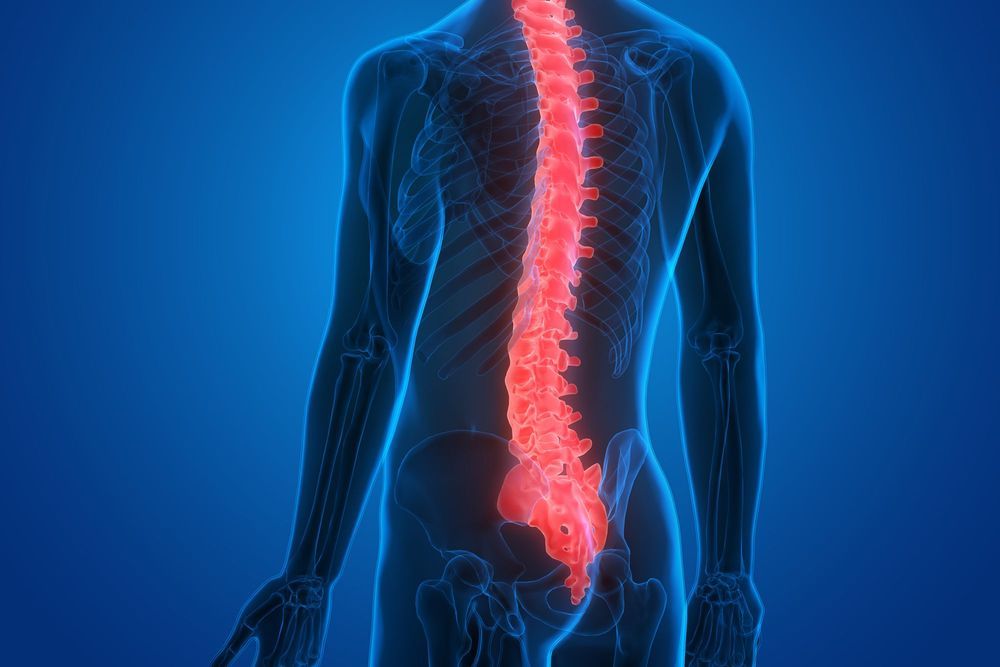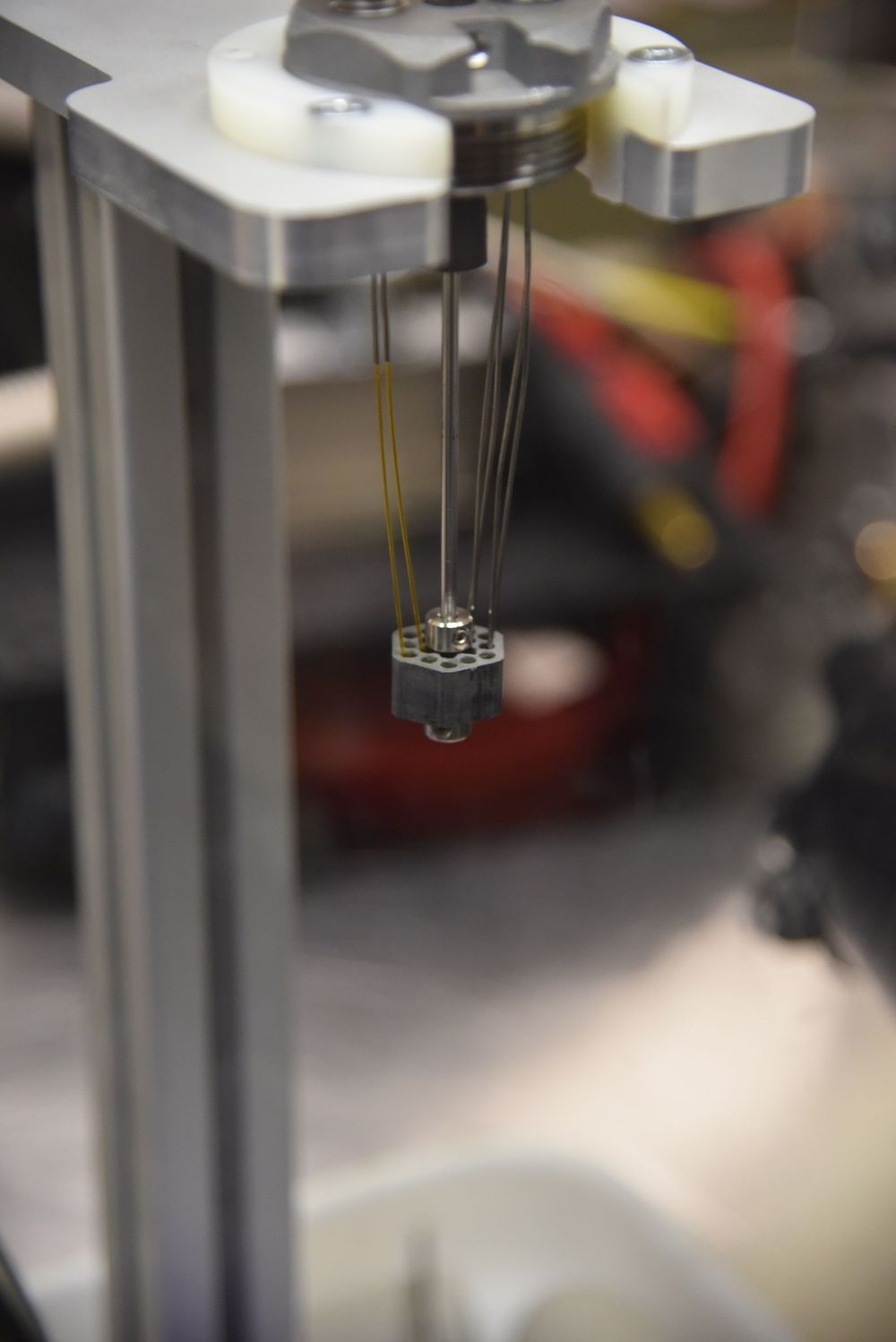While lawmakers and regulators look to combat monopolies by online giants, some innovators are developing internet platforms to prevent monopolies from forming in the future.
SEX robots that can “breathe” using a robotic chest cavity will are set to be unleashed onto seedy market.
Cloud Climax, UK agent for AI-AITech, says it is making great leaps in the technology of its top of the range model, “Emma”.
The company’s eventual aim is to make the robot move its arms and legs so it can walk.
Polymerized estrogen shown to protect nervous system cells. Research could enable improved treatment of spinal cord injuries.
Spinal cord damage that causes paralysis and reduced mobility doesn’t always stop with the initial trauma, but there are few treatment options to halt increased deterioration — and there is no cure. Researchers at Rensselaer Polytechnic Institute have developed a promising new biomaterial that could offer targeted treatment to the damaged spinal cord and tissue, preventing further damage.
In research published today (October 23, 2019) in Nature Communications, an interdisciplinary team from Rensselaer demonstrated how estrogen — a natural hormone produced in the body — can be polymerized into a slow-releasing biomaterial and applied to nervous system cells to protect those cells and even promote regeneration.
“You’ve graduated from the school of spectral hard knocks,” Paul Tilghman, a U.S. Defense Advanced Research Projects Agency (DARPA) program manager, told the teams competing in the agency’s Spectrum Collaboration Challenge (SC2) finale on 23 October. The three-year competition had just concluded, and the top three teams were being called on stage as a song that sounded vaguely like “Pomp and Circumstance” played overhead.
“Hard knocks” wasn’t an exaggeration—the 10 teams that made it to the finale, as well as others who were eliminated in earlier rounds of the competition—had been tasked with proving something that hadn’t been demonstrated before. Their challenge was to see if AI-managed radio systems could work together to share wireless spectrum more effectively than static, pre-allocated bands. They had spent years battling it out in match-ups in a specially-built RF emulator DARPA built for the competition, Colosseum.
By the end of the finale, the top teams had demonstrated their systems could transmit more data over less spectrum than existing standards like LTE, and shown an impressive ability to reuse spectrum over multiple radios. In some finale match-ups, the radio systems of five teams were transmitting over 200 or 300 percent more data than is currently possible with today’s rigid spectrum band allocations. And that’s important, given that we’re facing a looming wireless spectrum crunch.
In 2022, we’ll send a rover to hunt for water at the lunar south pole. Learn more about our VIPER mission and how its findings will bring us closer to establishing a sustainable presence on the Moon: https://go.nasa.gov/2WcDtCQ
Japan’s SoftBank shaken
Posted in business, robotics/AI
TOKYO — Japanese technology giant SoftBank has committed billions of dollars to bailing out office-space sharing startup WeWork in a daring vote of confidence from its intrepid founder Masayoshi Son.
WeWork’s woes are substantial enough that some analysts say they could derail the investment ambitions of SoftBank’s mammoth Vision Fund.
But, as one of the most innovative companies in conservative Japan Inc., SoftBank is no stranger to risk-taking. SoftBank oversees an expanding conglomerate of businesses spanning telecommunications, energy and humanoid robots:
Coupled with a high enough battery capacity to keep a vehicle running during darker hours, solar-powered cars have the potential to completely outdo other new types of tech that are currently in the pipeline — from hybrid vehicles to hydrogen-powered cars.
- Toyota, Sharp, and NEDO have teamed up to manufacture a unique car that could “run forever”, according to Bloomberg.
- There have been promising advances in developing thin enough solar panels for curved surfaces, as well as in tech for charging vehicles while they’re in motion.
- The solar cells the companies are working on attaching to the car are only 0.03 mm thick, so they can be attached to curved areas on cars like the roof, the hood, or the hatchback.
- By pairing more efficient solar cells with high-capacity batteries to keep vehicles running at night, solar cars have the potential to outperform hybrid vehicles and hydrogen-powered cars.
- Visit Business Insider’s homepage for more stories.
A solar-powered electric car that runs without needing charging may sound impossible, but Toyota, Sharp, and NEDO (New Energy and Industrial Technology Development Organization of Japan) have joined forces to hopefully make it a reality.
By pairing together the best solar panels on the market with the most efficient batteries available — not to mention years worth of experience with car-manufacturing — the companies are hoping, theoretically, to produce a vehicle that might run forever.
To go where no man has gone before (and to get back) will require quite a bit of oomph. All that energy must come from somewhere. Traditional chemical rocket fuels could work for some missions, but nuclear-based propulsion systems have several advantages.
Nuclear thermal propulsion (NTP) rockets use a nuclear reaction to heat liquid hydrogen. When the hydrogen is heated, it expands and is forced through a nozzle to produce thrust. This is similar to how air can stream out of the stem of a balloon and cause it to fly across the room. With rockets, this happens with much greater speed and force.
These hydrogen propelled rockets are designed for space exploration, not for use on Earth, and subsequently would not be turned on (i.e. brought critical) until after they left Earth. Although the specific type of fuel for these applications has not been formally selected, the fuel envisioned for use in an NTP environment is uranium fuel.
As the Big Bang theory goes, somewhere around 13.8 billion years ago the universe exploded into being, as an infinitely small, compact fireball of matter that cooled as it expanded, triggering reactions that cooked up the first stars and galaxies, and all the forms of matter that we see (and are) today.
Just before the Big Bang launched the universe onto its ever-expanding course, physicists believe, there was another, more explosive phase of the early universe at play: cosmic inflation, which lasted less than a trillionth of a second. During this period, matter—a cold, homogeneous goop—inflated exponentially quickly before processes of the Big Bang took over to more slowly expand and diversify the infant universe.
Recent observations have independently supported theories for both the Big Bang and cosmic inflation. But the two processes are so radically different from each other that scientists have struggled to conceive of how one followed the other.









